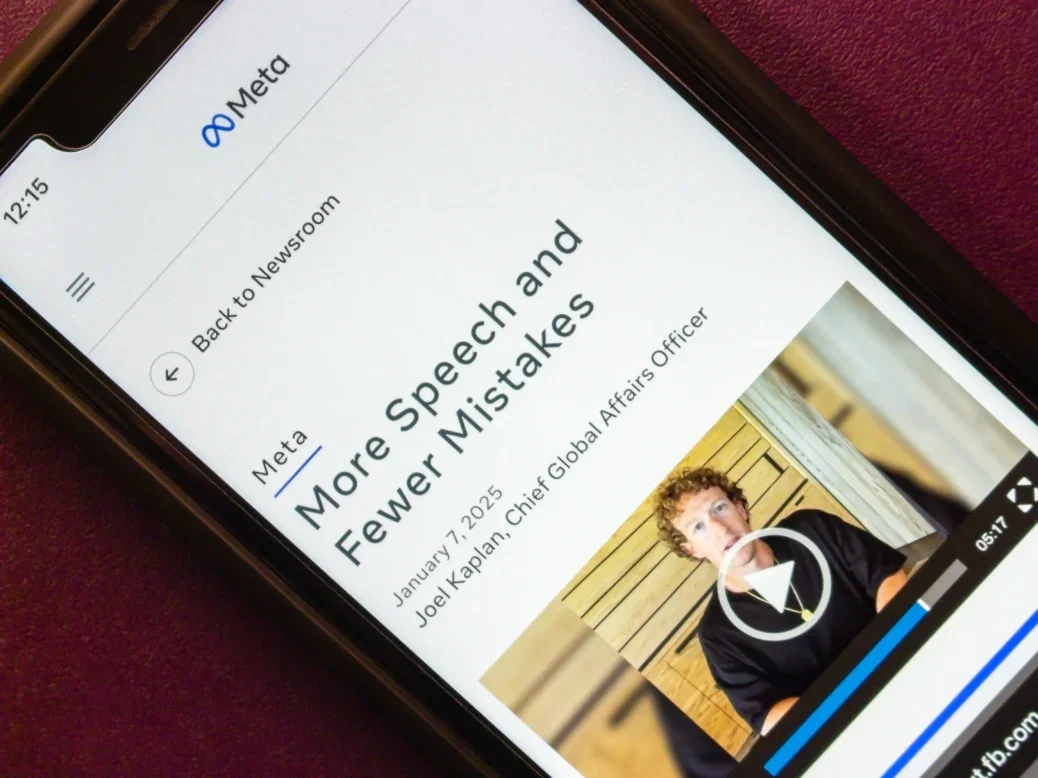
This piece was published in collaboration with the LGBTQ+ Journalism Network.
LGBTQ+ journalists have spoken of their dismay at Meta’s controversial changes to its Hateful Conduct policy, with some planning to phase out using platforms owned by the technology company in their journalism practice.
On 7 January chief executive Mark Zuckerberg announced sweeping changes to Meta, the parent company of Facebook, Instagram, Threads and Whatsapp. He said the company would cease moderating topics that are “subject of frequent political discourse and debate”, like immigration and gender identity, as well as ditch its third-party fact checking service in favour of a community notes system which is seen on Elon Musk’s platform X, formerly known as Twitter.
On the same day Meta also made updates to its Hateful Conduct policy, stating users are able to describe LGBTQ+ people as “mentally ill” and “abnormal” simply because they are LGBTQ+.
“We do allow allegations of mental illness or abnormality when based on gender or sexual orientation, given political and religious discourse about transgenderism and homosexuality and common non-serious usage of words such as ‘weird’,” the update to the guidelines reads.
Meta’s changes were immediately met with praise from free speech absolutists whilst human rights, anti-racism and LGBTQ+ groups – as well as the co-chair of Meta’s own oversight board – expressed concern.
Speaking to the LGBTQ+ Journalism Network about the changes, journalist William Elisabeth Cuthbert said they feel “frustrated” by Meta seemingly “caving to extreme right-wing threats”, as well as “afraid” for the human rights impacts.
“We keep seeing more people’s human rights and freedoms being attacked, while too many are still too ignorant or apathetic to protest,” Cuthbert explained.
“It makes me concerned about how much it will take to make the general public understand the threat this escalation poses to them, and to the people they know and love.”
Alyx, an executive producer for What the Trans?!, said she was “disappointed” but “given Twitter’s precedent-setting, it is not a surprise”.
Since Musk bought that platform for a reported $44 billion in 2022 it has scrapped the means to report transphobic content and been named by GLAAD as the most dangerous social media platform for LGBTQ+ people.
“It’s dangerous and dehumanising, and it highlights how cowardly Meta is,” she said. “It’s fair to say it made us feel a whole lot of ‘Alright, here we go again’.
“I suppose one surprise was Meta announcing they’ll stop performing certain kinds of moderation, because we weren’t aware they were doing any.”
Cuthbert was forthright in saying they will be phasing out use of their Meta accounts with “intention” to delete them, meaning they are currently “reconsidering” how they will find opportunities, contacts and networking online as removing Meta products “narrows my prospects”.
In April 2024, data from Statista showed that three out of the five most popular social media platforms in the world were Meta platforms – Facebook, Instagram and Whatsapp. With billions of active monthly users worldwide, many journalists make use of these platforms to find stories, reach out the sources and share their own work with an audience.
“It’s hard enough as a queer and trans journalist to get work out there and avoid hostile commenters without these changes,” Cuthbert said.
“I’ve developed a thick skin for bullying and abuse, and I could keep using Meta if that was all I cared about. But for the sake of my intersecting marginalised community and my own ethics, I can’t keep supporting these platforms personally or professionally.”
Alyx said What the Trans?! will signpost to alternative platforms it is also on but is not leaving Meta yet as the team will “keep it constantly under review”, adding: “But we won’t rule it out.”
“Since the US election, we have considerably reduced our usage of Twitter and only use it to post our podcast episodes. (Even if it makes us feel ill afterwards),” she explained. “And if we need to do the same to Meta, we will have to reduce usage.
“We are located in so many other alternative places. Trying to get rid of us might as well be a game of whack-a-mole.”
She added that in terms of Meta’s changes impacting the outlet’s ability to carry journalistic practice “as long as we can post a link to our website for our podcast and content” they can “try to ignore any of the bulls**t underneath the posts if needs be”.
“We already make liberal use of the ‘block’ button all across our social media and we don’t expect that to change,” she said.
Expressing concern about social media more widely, Cuthbert said one of their main worries is that “if things keep progressing as they are, I’ll start to lose touch with more of the work friends and contacts I have”.
“With being queer and disabled already making forging a career harder, I treasure the friends and allies I’ve found, and dread losing ways to reach out to them without getting buried in their email inboxes.
“I do have hope for the individual and organised resistance that’s taking place on and off social media. And meanwhile, as always, I’ll be doing my part by writing and sharing the marginalised stories platforms like these suppress, wherever and however I can.”
Email pged@pressgazette.co.uk to point out mistakes, provide story tips or send in a letter for publication on our "Letters Page" blog
